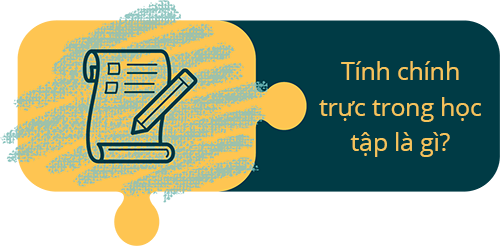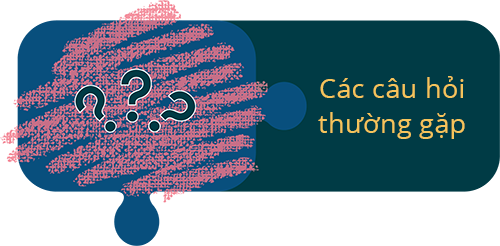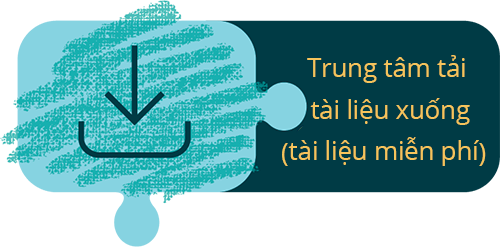Tính chính trực trong học tập
Tính chính trực trong học tập là:
‘Sự kỳ vọng rằng các giáo viên, sinh viên, nhà nghiên cứu và tất cả các thành viên của cộng đồng học tập hành động với: tính trung thực, sự tin cậy, công bằng, sự tôn trọng và tinh thần trách nhiệm.'
Vi phạm tính chính trực trong học tập còn được gọi là "hành vi sai trái trong học tập" hoặc ‘không trung thực trong học tập’.
Tất cả các sinh viên giáo dục đại học của Úc được kỳ vọng sẽ duy trì tính chính trực trong học tập trong suốt quá trình học tập của họ. Một cách quan trọng để duy trì tính chính trực trong học tập của bạn là liên hệ với giáo viên hoặc trường học của bạn nếu bạn đang gặp vấn đề trong học tập và làm việc với họ để tìm ra giải pháp.
Việc nghiên cứu và học tập cung cấp kiến thức mong đợi cho một sinh viên tốt nghiệp khóa học của bạn nhưng bất kỳ hình thức gian lận nào cũng có nghĩa là bạn có thể bỏ lỡ kiến thức chuyên môn quan trọng và thực hành mà bạn cần để thành công trong sự nghiệp tương lai của mình.
Bảo vệ danh tiếng của bạn
Các sinh viên trở thành một phần của cộng đồng học tập khi tham gia học tập. Những hành động làm suy yếu tính chính trực trong học tập của khóa học hoặc cơ sở giáo dục của bạn có thể ảnh hưởng đến danh tiếng của bạn trong tương lai. Ví dụ: nếu bạn bị phát hiện gian lận trong quá trình học, các cơ quan chuyên môn có thể từ chối công nhận bạn.
Tránh tội phạm
Duy trì sự chính trực trong học tập cũng bảo vệ bạn khỏi tội phạm.
Dịch vụ gian lận thương mại là bất hợp pháp ở Úc.
Các sinh viên sử dụng các dịch vụ gian lận bất hợp pháp, để mua một bài luận, các ghi chú học tập hoặc để ai đó mạo danh họ trong một kỳ thi, cũng có nguy cơ bị tống tiền. Những người điều hành các dịch vụ gian lận bất hợp pháp có thể đe dọa thông báo cho trường đại học hoặc nhà tuyển dụng tương lai của sinh viên về hành vi gian lận của họ trừ khi sinh viên trả cho họ một khoản tiền lớn - đôi khi vài năm sau khi việc gian lận diễn ra.
Các hành vi hỗ trợ tính chính trực trong học tập

Bạn có thể hỗ trợ tính chính trực trong học tập bằng cách1:
- xác nhận thông tin bạn sử dụng đến từ đâu, trích dẫn rõ ràng hoặc ghi nguồn tài liệu tham khảo
- tự làm bài kiểm tra và nộp bài của chính bạn
- báo cáo chính xác các kết quả nghiên cứu và tuân thủ các chính sách nghiên cứu
- sử dụng thông tin một cách thích hợp, theo luật bản quyền và quyền riêng tư
- hành động có đạo đức hoặc làm 'điều đúng đắn', ngay cả khi bạn đang gặp khó khăn.
Nếu bạn đang gặp vấn đề có thể ảnh hưởng đến kết quả học tập của mình, tốt nhất bạn nên nói chuyện với giảng viên hoặc gia sư hoặc điều phối viên khóa học của bạn.
Các hành vi làm suy yếu tính chính trực trong học tập

Nhiều hành vi của sinh viên có thể làm suy yếu tính chính trực trong học tập. Đôi khi, các sinh viên nhầm tưởng rằng những hành vi này là phổ biến hoặc không để lại hậu quả. Điều này sai. Các hình phạt đáng kể có thể áp dụng đối với việc vi phạm tính chính trực trong học tập (xem Các hình phạt khi vi phạm tính chính trực trong học tập bên dưới để biết thêm thông tin).
Các hành vi làm suy yếu hoặc vi phạm sự chính trực trong học tập bao gồm2:
Đạo văn
Nộp một bài làm không phải của bạn mà không xác nhận, trích dẫn hoặc tham chiếu nguồn gốc của bài làm, được gọi là đạo văn. Bất kể là bạn làm điều này vô tình hay cố ý, bất kể là bạn thay đổi các từ để biến chúng thành của riêng mình hay chỉ đơn thuần sao chép và dán đều không quan trọng. Khi bạn đang sử dụng suy nghĩ và ý tưởng của người khác, bạn phải ghi tài liệu nguồn tham khảo.
Chế biến hoặc nộp lại một bài làm
Chế biến bao gồm việc nộp (hoặc nộp lại) một bài làm đã được đánh giá mà không có sự cho phép của giáo viên. Ví dụ: nộp báo cáo mà bạn đã được cho điểm ở năm thứ nhất như một phần công việc của bạn ở năm thứ ba. Nếu bạn muốn phát triển thêm dựa trên công việc trước đây của mình, bạn nên thảo luận điều này trước với giáo viên của mình.
Bịa đặt thông tin
Bịa đặt liên quan đến việc tạo ra thông tin cho các bài đánh giá tập trung vào nghiên cứu, chẳng hạn như dữ liệu thử nghiệm hoặc phỏng vấn. Nó cũng có thể bao gồm việc sáng chế ra các nguồn dữ liệu, bằng chứng hoặc ý tưởng bằng cách trích dẫn các ấn phẩm không chính xác hoặc đơn giản là không tồn tại.
Thông đồng
Thông đồng bao gồm việc tham gia hợp tác bất hợp pháp với một hoặc nhiều sinh viên khác để hoàn thành một bài làm có thể đánh giá được. Điều này khác với việc làm bài tập nhóm do giáo viên của bạn đặt ra. Ví dụ về việc hợp tác bất hợp pháp bao gồm làm việc với một người bạn hoặc một nhóm bạn để viết một bài luận hoặc báo cáo được coi là một bài làm riêng lẻ. Nó cũng có thể bao gồm việc chia sẻ câu hỏi và câu trả lời câu đố hoặc bài kiểm tra với các sinh viên khác, cũng như các bài tập viết như báo cáo và tiểu luận. Việc hợp tác bất hợp pháp có thể mang lại lợi ích không công bằng cho một sinh viên hoặc một nhóm sinh viên so với những người khác. Các sinh viên cũng không nên chia sẻ bài làm của mình với người khác vì có nguy cơ người được bạn chia sẻ nó có thể tải nó lên một dịch vụ gian lận thương mại bất hợp pháp hoặc lưu hành nó cho người khác.
Gian lận trong kỳ thi
Gian lận trong kỳ thi bao gồm:
- viết 'ghi chú gian lận' trên cơ thể của bạn hoặc tài liệu bạn mang vào phòng thi
- tìm cách sao chép từ các sinh viên khác
- giao tiếp với các sinh viên khác hoặc những người bên ngoài địa điểm tổ chức kỳ thi trong khi kỳ thi đang diễn ra
- sử dụng thiết bị điện tử để truy cập thông tin liên quan đến kỳ thi khi kỳ thi đang diễn ra
- mang các món đồ bị cấm, chẳng hạn như máy tính hoặc sách giáo khoa không được chấp thuận vào các kỳ thi.
Gian lận hợp đồng và mạo danh
Gian lận hợp đồng là một loại gian lận thương mại bất hợp pháp. Nó bao gồm việc nhờ người khác hoàn thành một phần hoặc toàn bộ bài làm của bạn và sau đó nộp bài làm đó như thể bạn đã tự mình hoàn thành bài làm đó. Điều này có thể bao gồm việc nhờ người khác làm bài kiểm tra cho bạn hoặc nhờ họ viết một bài luận, báo cáo hoặc một số loại bài tập khác, đôi khi được gọi là 'viết ma'.
Các hành động hỗ trợ các dịch vụ gian lận hợp đồng bất hợp pháp cũng bị coi là vi phạm tính chính trực trong học tập. Điều này bao gồm việc sinh viên tải lên các tài liệu giảng dạy chẳng hạn như bài kiểm tra thực hành, các tờ chiếu (slide) trình bày bài giảng và câu hỏi bài tập vào phần 'ghi chú học tập'.
Hình phạt khi vi phạm tính chính trực trong học tập

Các sinh viên có thể phải đối mặt với một loạt hình phạt nếu vi phạm tính chính trực trong học tập, thường được gọi là "hành vi sai trái trong học tập" hoặc "không trung thực trong học tập". Người ta thường nghĩ rằng sinh viên hiếm khi bị bắt. Tuy nhiên, nghiên cứu cho thấy các giáo viên và cơ sở giáo dục có thể phát hiện ra những vi phạm về tính chính trực trong học tập, và những sinh viên làm sai sẽ bị bắt3. Và các cách bắt gian lận không ngừng được cải tiến.
Các hình phạt đối với việc vi phạm tính chính trực trong học tập có thể bao gồm:
- phải lặp lại bài đánh giá hoặc đơn vị học phần
- không đạt bài đánh giá, đơn vị học phần hoặc khóa học
- bị trục xuất khỏi cơ sở giáo dục của bạn, điều này có thể ảnh hưởng đến thị thực sinh viên của bạn
- đối mặt với cáo buộc hình sự.
Ngoài nguy cơ bị phạt tiền trong học tập hoặc hình sự, việc bị phát hiện vi phạm tính chính trực trong học tập có thể ảnh hưởng đến mối quan hệ của bạn với các sinh viên khác, gia đình và bạn bè; ảnh hưởng đến sự nghiệp tương lai của bạn và khiến bạn bị tổn thất tài chính hoặc thậm chí mất thị thực du học.
Tìm sự giúp đỡ

Nếu bạn có thắc mắc về tính chính trực trong học tập, hoặc cần tư vấn và hỗ trợ về kỹ năng học tập, bạn nên nói chuyện với cơ sở giáo dục của bạn. Giáo viên hoặc điều phối viên khóa học của bạn là một nơi tốt để bắt đầu.
Nếu bạn bị cáo buộc đã vi phạm tính chính trực trong học tập, bạn nên xử lý vấn đề này một cách nghiêm túc. Cơ sở giáo dục của bạn phải có các chính sách và thủ tục rõ ràng liên quan đến kỷ luật, khiếu nại và kháng cáo của sinh viên. Bạn nên đọc các chính sách này và bạn cũng có thể tìm kiếm các dịch vụ bênh vực và hỗ trợ từ hiệp hội sinh viên của mình nếu có tại cơ sở giáo dục của bạn.
Phần tiếp theo (Xác định, tránh và báo cáo các dịch vụ gian lận bất hợp pháp) nêu lý do tại sao bạn nên tránh nhận trợ giúp từ các trang mạng hoặc dịch vụ được quảng cáo trên phương tiện truyền thông xã hội vì chúng có thể là dịch vụ gian lận bất hợp pháp.
Ghi chú
- Các định nghĩa được mô phỏng từ tài liệu do Đại học La Trobe soạn thảo.
- Các định nghĩa mô phỏng từ tài liệu do Đại học Sydney soạn thảo.
- Dawson, P. & Sutherland-Smith, W. (2017). Can markers detect contract cheating? Results from a pilot study, Assessment and Evaluation in Higher Education.
Quay lại trang đích Hiểu biết về Tính Chính trực trong Học tập








